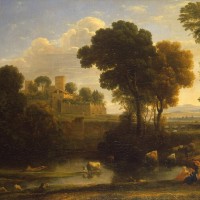4 Poets in Prairie Schooner

Prairie Schooner, first published in 1926, is a literary journal issued quarterly at the University of Nebraska Lincoln. It publishes writers from across the States, and indeed the world, which makes it difficult to understand why, in recent years, so much of its poetry has descended to well-meaning amateurism. Readers who disagree may do their own reading, of course, but I review here a few poems that seem a little better.
Making Lunch (http://prairieschooner.unl.edu/?q=excerpt/making-lunch) is a simple descriptive piece by Joseph Millar where the author, looking out on a bleak winter scene, conjures up the warm Mediterranean world inherent in what he’s eating:
I spread out the mustard
like a gold map
over the slabs of rye
Then follows (I summarize to avoid infringing copyright) mozzarella, tomatoes, grapes and olives, and a sunlit countryside:
where children run barefoot
chasing a rusty bicycle rim
and the grass clumps up
through cracks in the bricks
next to a stone bridge scaled
with gray lichen, and the warm earth
swollen with black truffle fungi,
smells of bay leaves and wine.
Much more ambitious (but successful) is Fleda Brown’s On a Day that Bombs (http://prairieschooner.unl.edu/?q=excerpt/day-bombs) a poem in which the insouciant tone adds to its deadly purpose. The poem opens:
On a day that bombs were being dropped by drone aircraft
in several regions of Libya, blowing apart fragile bodies,
many of whom were living their sincere and momentary lives,
it was a perfect day here except for the wind and the flies.
Then follow some observations on the mayflies, which are as equally present as the bombs, and fragile:
I think of the word
fragile: its dual syllables a form of concealment, both
history and mystery, sun and shade.
Then a mock bewilderment at such events:
I am writing this because
I don’t know what is appropriate in this world.
A comment on the Jewish experience follows, and on the sanity which their Passover meal which accepts the irrationality and wickedness of human creatures, but then notes that a price has to be paid:
Why do I always think of an irrational violin in a minor
chord, not human, not even a bird-cry, more like the sound
of nutrinos slipping through everything, grazing the edges
as they pass, just a small scratch, but adding up.
Steve Lautermilch’s poem is a meditation on a late Cezanne painting. Swell, Millstone, Cistern, Cliff (1892) It can be read here:
http://prairieschooner.unl.edu/?q=well-millstone-cistern-cliff-1892
Not just a meditation on the uncompromising landscape, of course, but the painter’s own life, increasingly arid after his wife’s desertion:
The cistern has run dry. Now the stone well,
shaped rock and unshaped, collects sound, and what
is beyond sound, the crackle of wrinkled stems
curling to flame.
Especially to be noted is the pitilessly exact phonetic patterning:
A tent of shavings, tinder,
leaves, wick and wicker bleached to windless scraps,
rag and bone for the match.
From which we turn to the artist himself.
What were you feeling, old young man,
haunting that grove, leaf-hold
where a millstone was cut and hauled,
makings for the mill that never was built.
Where the dedication to his art has dried into an identification with elemental forms:
Slashing, stroking, patching,
repairing. Coming about. And always
under sea the eddy and ebb, below and within
and between each pulse, the bead and bell
of the unknown, unwatered life.
Meditation is also the theme of Mark Sullivan’s Landscape in the Style of Li Cheng, which can be read here: http://prairieschooner.unl.edu/?q=landscape-style-li-cheng . It start innocuously:
What if you could breathe into words what happens
during the quiet relinquishments of rain in the city,
the deepening grays and the hard surfaces ringing?
What follows is probably best called a flight of free association through the rain-sodden amusements in New York, until we come to:
And cleanse
me of my wrongdoing, then the counted silence
that is the space separating words.
Which melt into the Chinese landscape:
The storm has
just lifted; a tiny man on a donkey is about to cross
a bridge into the village clustered on a low slope.
A multi-layered experience which is collected and then dispersed in the concluding lines.
The mountains looming and layering
beyond. Vast, encompassing, and those lives like water
where it pools, finding its level, doubling the extent.
